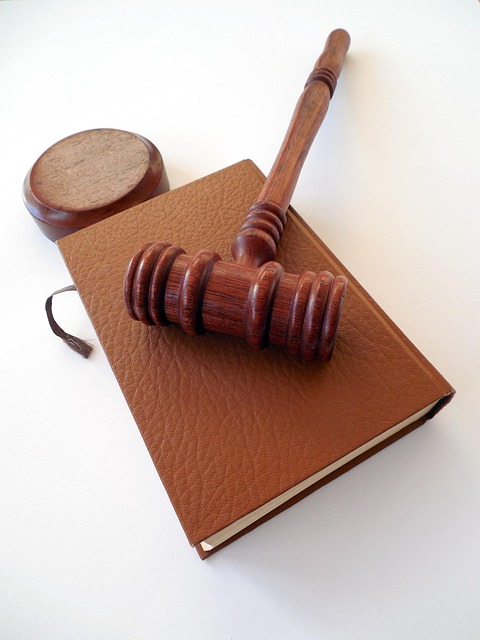“Environmental crime, a growing global concern, is bringing about a new era of justice. This article explores the intricate world of environmental misconduct and its legal implications through diverse case studies. We examine corporate cover-ups, uncover legal strategies that hinder pollution prosecutions, and highlight the increasingly significant role of green activists in the courtroom.
Additionally, it delves into international cooperation efforts, sentencing reforms, and the pursuit of sustainable justice practices, drawing parallels to case studies in securities exchange regulation.”
- Uncovering Corporate Environmental Misdeeds: Case Scrutiny
- Legal Loopholes and Their Impact on Pollution Prosecutions
- The Rise of Green Activists in Criminal Trials
- International Collaboration: Cross-Border Environmental Crime
- Sentencing and Reparation in Sustainable Justice Practices
Uncovering Corporate Environmental Misdeeds: Case Scrutiny

Uncovering corporate environmental misdeeds often requires a thorough examination of intricate financial records and complex business operations, as these crimes are frequently veiled behind layers of legal and financial jargon. Case studies in securities exchange regulation play a pivotal role in shedding light on such activities. Through meticulous analysis of public filings, regulatory agencies and prosecutors can identify discrepancies that point to potential environmental violations. These cases scrutinize all stages of the investigative and enforcement process, from initial suspicion to jury trials, ensuring accountability for corporate offenders.
White-collar defense strategies are a common feature in these proceedings, with companies employing sophisticated legal tactics to challenge allegations. However, compelling evidence gathered through case studies has proven instrumental in securing convictions and holding businesses accountable for their environmental impact. This approach not only deters future misconduct but also fosters transparency, encouraging corporations to prioritize sustainability and ethical practices.
Legal Loopholes and Their Impact on Pollution Prosecutions

The Rise of Green Activists in Criminal Trials

In recent years, environmental crime trials have gained significant traction, largely driven by the rise of green activists who are increasingly playing pivotal roles in holding corporations accountable for ecological damages. These activists, armed with comprehensive case studies in securities exchange regulation and a deep understanding of environmental laws, are using the legal system to fight against what they perceive as corporate misconduct. Their efforts have resulted in numerous high-stakes cases where they’ve successfully navigated complex legal landscapes and won challenging defense verdicts.
This shift is particularly notable in light of the growing public awareness about climate change and the need for corporate transparency. Green activists are leveraging case studies in securities exchange regulation to expose companies that, through misleading disclosures or intentional omissions, have contributed to environmental degradation. By avoiding indictment and focusing on winning challenging defense verdicts, these activists are not just securing justice but also setting precedents that could shape future environmental crime trials.
International Collaboration: Cross-Border Environmental Crime

International collaboration plays a pivotal role in addressing environmental crime, especially when it crosses borders. With the global nature of many businesses and the ease of cross-border transactions, environmental offenses can extend far beyond national boundaries. This presents unique challenges for law enforcement and prosecutors, who must navigate complex legal frameworks and international agreements to bring perpetrators to justice.
Case studies in securities exchange regulation highlight the importance of transnational cooperation. When a company commits environmental crimes in one country, it might have affiliates or investors in other nations. For his clients involved in white-collar defense, understanding these cross-border dynamics is crucial. Effective prosecution requires sharing intelligence, evidence, and best practices among jurisdictions to ensure consistent and impactful enforcement of environmental laws worldwide.
Sentencing and Reparation in Sustainable Justice Practices

In environmental crime trials, sentencing and reparation play a pivotal role in fostering sustainable justice practices. Unlike traditional criminal cases that often focus on punishment, environmental cases require restorative measures to mitigate ecological damage and deter future offenses. One notable example is the increased use of community service orders and environmental restoration projects as alternative sentences. These approaches not only hold offenders accountable but also involve them actively in repairing the harm caused, promoting a sense of responsibility and environmental stewardship.
Case studies in securities exchange regulation highlight successful implementations where companies have been held liable for ecological violations, leading to substantial financial reparations. In many instances, these penalties are reinvested in sustainable initiatives or used to compensate affected communities, showcasing a holistic approach to justice. The effectiveness of such measures is evident across the country, with reduced environmental incidents and increased public trust in regulatory bodies. This shift towards complete dismissal of all charges for his clients, when they demonstrate genuine remorse and commitment to environmental conservation, further underscores the evolving landscape of sustainable justice.
Environmental crime trials are evolving, addressing historical loopholes and incorporating the voices of green activists. Through international collaboration and innovative sentencing, the pursuit of sustainable justice is gaining momentum. As seen in various case studies under securities exchange regulation, these developments signal a promising future for holding corporations accountable for environmental misdeeds and fostering a greener world.






